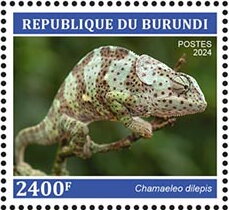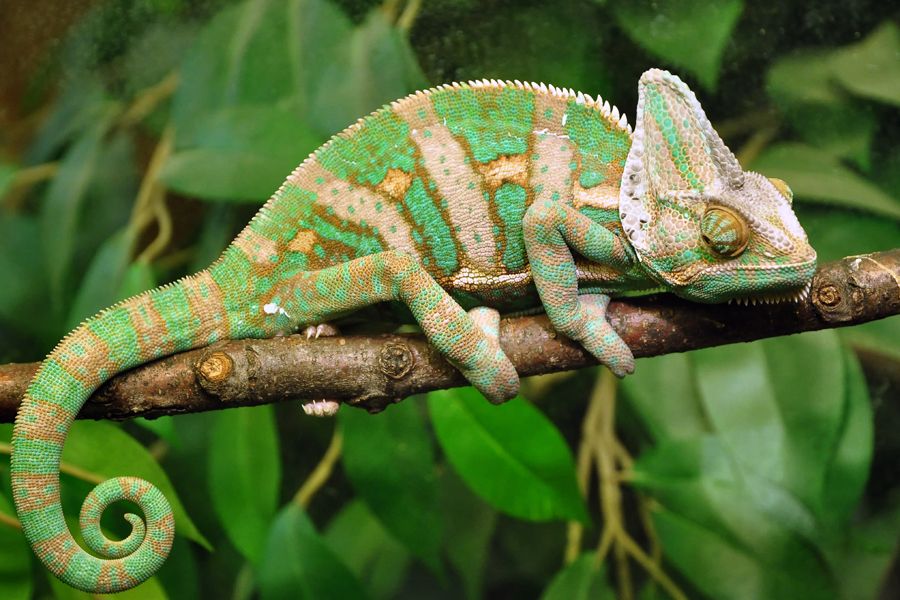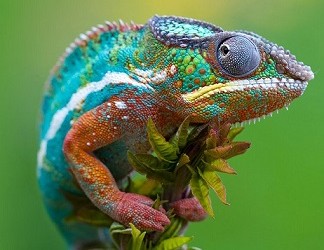Stamp: Chamaeleo dilepsis (Burundi 2024)
Chamaeleo dilepsis (Burundi 2024)
02 October (Burundi ) within release Reptiles of Burundi (2024) goes into circulation Stamp Chamaeleo dilepsis face value 2,400 Burundian franc
| Stamp Chamaeleo dilepsis in catalogues | |
|---|---|
| Colnect codes: | Col: BI 2024.10.02-03d |
Stamp is square format.
Also in the issue Reptiles of Burundi (2024):
- Stamp - Chamaeleo dilepsis face value 2,400;
- Stamp - Chamaeleo dilepsis face value 2,400;
- Stamp - Chamaeleo dilepsis face value 2,400;
- Stamp - Chamaeleo dilepsis face value 2,400;
- Mini Sheet - Reptiles of Burundi face value 4*2400;
- Souvenir Sheet - Reptiles of Burundi face value 5,000;
- Stamp - Trioceros johnstonii face value 5,000;
|
Data entry completed
50%
|
|
|---|---|
| Stamp Chamaeleo dilepsis in digits | |
| Country: | Burundi |
| Date: | 2024-10-02 |
| Print: | Offset lithography |
| Emission: | Agency Issue |
| Format: | Stamp |
| Face Value: | 2,400 Burundian franc |
Stamp Chamaeleo dilepsis it reflects the thematic directions:
Animals are multicellular, eukaryotic organisms of the kingdom Animalia (also called Metazoa). All animals are motile, meaning they can move spontaneously and independently, at some point in their lives. Their body plan eventually becomes fixed as they develop, although some undergo a process of metamorphosis later on in their lives. All animals are heterotrophs: they must ingest other organisms or their products for sustenance.
Chameleons or chamaeleons (family Chamaeleonidae) are a distinctive and highly specialized clade of Old World lizards with 200 species described as of June 2015. The members of this family are best known for their distinct range of colours, being capable of colour-shifting camouflage. The large number of species in the family exhibit considerable variability in their capacity to change colour. For some, it is more of a shift of brightness (shades of brown); for others, a plethora of colour-combinations (reds, yellows, greens, blues) can be see
Reptiles are tetrapod (four-limbed vertebrate) animals in the class Reptilia, comprising today's turtles, crocodilians, snakes, amphisbaenians, lizards, tuatara, and their extinct relatives. The study of these traditional reptile orders, historically combined with that of modern amphibians, is called herpetology. Because some reptiles are more closely related to birds than they are to other reptiles (e.g., crocodiles are more closely related to birds than they are to lizards), the traditional groups of "reptiles" listed above do not together constitute a monophyletic grouping (or clade). For this reason, many modern scientists prefer to consider the birds part of Reptilia as well, thereby making Reptilia a monophyletic class.



